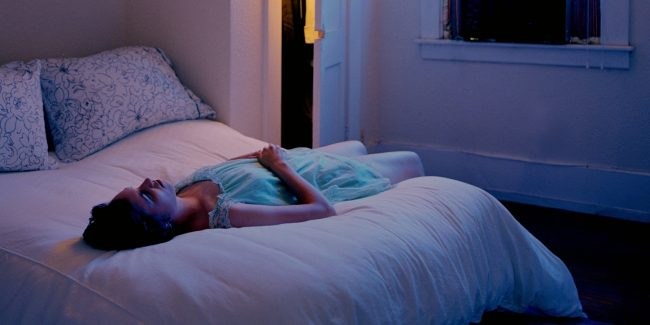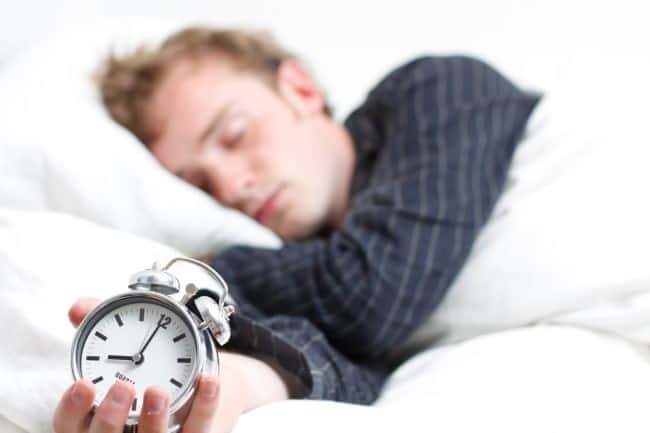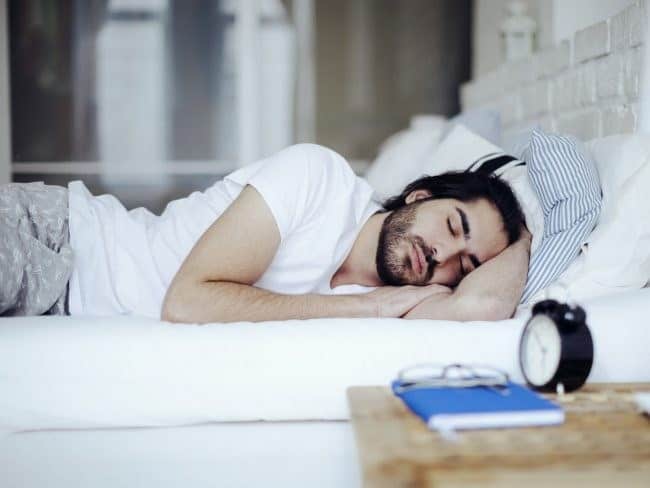
Getting enough sleep is a crucial factor in our mental and physical wellbeing. Falling short of the required 8 hours can directly affect our energy, weight, emotional balance, and productivity. If you’re someone who has trouble with getting some shuteye, don’t lose hope because you have much more control over your nighttime habits than you think.
Here are a few lifestyle changs that may help you doze off easier:
1. Power down your devices before bed.

Avoid bright screens within 1 to 2 hours of bedtime. This includes light from televisions, backlit surfaces, computers and phones or tablets. When you’re exposed to light, your brain produces less melatonin. Melatonin is a naturally occurring hormone that lets you know when it’s time to sleep or wake up. Its production is controlled by how much light you’re getting.
Turn your brightness down or use a light-altering software like f.lux.
2. Persuade your brain to calm down.

Over stimulating your brain keeps you from sleeping at night, so try and calm yourself down. Manage your time effectively so you won’t have to deal with the stress at night or train your brain to either stop worrying by the time you hit the sack.If that doesn’t work, try some breathing exercises that slow your heart rate down. Relaxation techniques like progressive muscle relaxation or tensing all your muscles gradually then releasing them, also work.
We recommend the Stop, Breathe, & Think app. It’s available on both iOS and Android devices. But you can also check out the HealthLine’s list of Best Meditation Apps for 2017.
3. Get as much sun as you can during the day.

Position your bed near a window with a curtain that lets light in. Eat your breakfast or have your coffee in a sunny spot. Take walks outside during your break. Exercise while the sun’s still out. Take every chance to go outside and bask under the sun.
When sunlight enters the eyes, the brain produces serotonin. Serotonin is considered to be a natural mood stabilizer that can help reduce depression, regulate anxiety, and push out unwanted toxins that might be stopping you from getting that good night’s rest. If your place has minimal sunshine, you can try getting a light therapy box.
4. Don’t overeat before sleeping.

Eating big meals, especially protein-rich ones, just before bedtime are a big nono. Why? Because your body gets too busy digesting all that food that if you lie down right after eating, it can cause heartburn. Dinner is best taken two hours before going to bed. If you must eat then opt for a light snack like a banana, a small bowl of low-sugar whole grain cereal, milk, or yoghurt.
5. Be careful about what you’re drinking and when you’re drinking it.

What you drink could be what’s interrupting your sleep. While we’re not asking you to dehydrate yourself, it would definitely be better to be mindful of what, when, and how much you’re drinking before you head on to bed. For example, having too many glasses of water could have you running to the toilet every few hours instead of getting uninterrupted sleep. So it’s best to cut down your water intake two hours before hitting the sack.
Drinking alcohol to stimulate sleep also isn’t a good idea. A study that revisited the myth on the impact of alcohol on sleep found that any dosage of alcohol reduces the amount of time needed to sleep.
Plus, did you know caffeine can cause sleep problems up to 12 hours after consuming it? Caffeine can be found in chocolate, cocoa, tea, carbonated drinks, and even some medicines. So a late afternoon cup of coffee should be avoided.
6. Get comfortable!

Maybe the reason why you’re having trouble sleeping is because you’re uncomfortable. Try changing your pillows. A firm pillow that can fill in the space between the ear and shoulder suits side-sleepers best, while stomach sleepers may prefer thin, flat ones.
You can also try changing your mattress. A lot of the tossing and turning could possibly be because what you’re lying on doesn’t fit right, is home to dust mites, has lost its sturdiness, etc. Consumer Reports suggest changing your mattress every five to ten years. New beds reportedly led to a significant decrease in stress.
Spraying on some lavender aromatherapy also helps, big time. It’s been found that just a whiff of lavender can lead to deeper sleep.
7. Set up an alarm and don’t snooze it.

Every time you hit that snooze button, you’re telling your body to go back to sleep because you have nothing to do. The second time it happens, you get sleep inertia, the period of grogginess you experience because your body is still transitioning from its sleep state.
Just as an alarm in the morning helps you get up, it’s also good to set up an alarm at night. Setting one at night can remind you to go to bed at your desired time.
8. Just go to sleep.

Don’t beat yourself up over it. Studies have found that stressing over how much sleep you’re getting (or not getting) will only make you more anxious. According to psychologist Annika Norell-Clarke at Sweden’s Örebreo University, “worrying over lack of sleep can lead to prolonged insomnia.” You’re better off just going to sleep than worrying about how long you’ll be sleeping or when you’ll fall asleep. Remember: quality over quantity!

